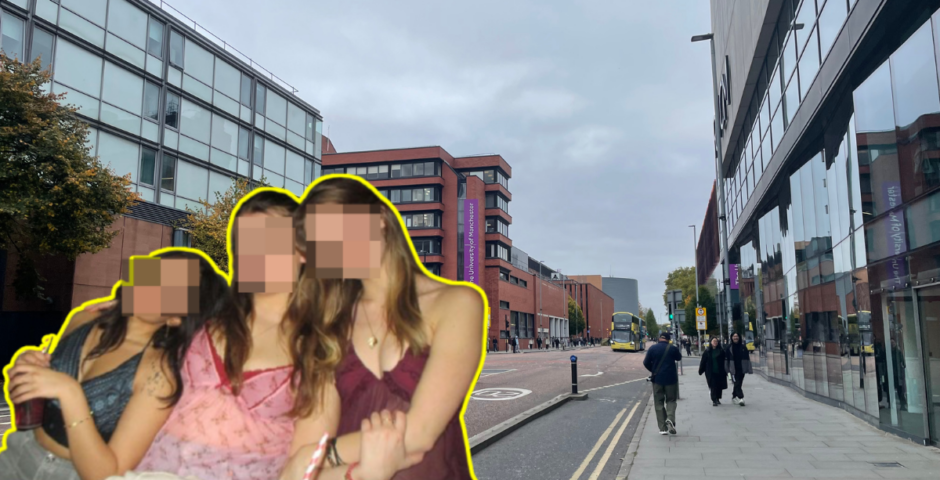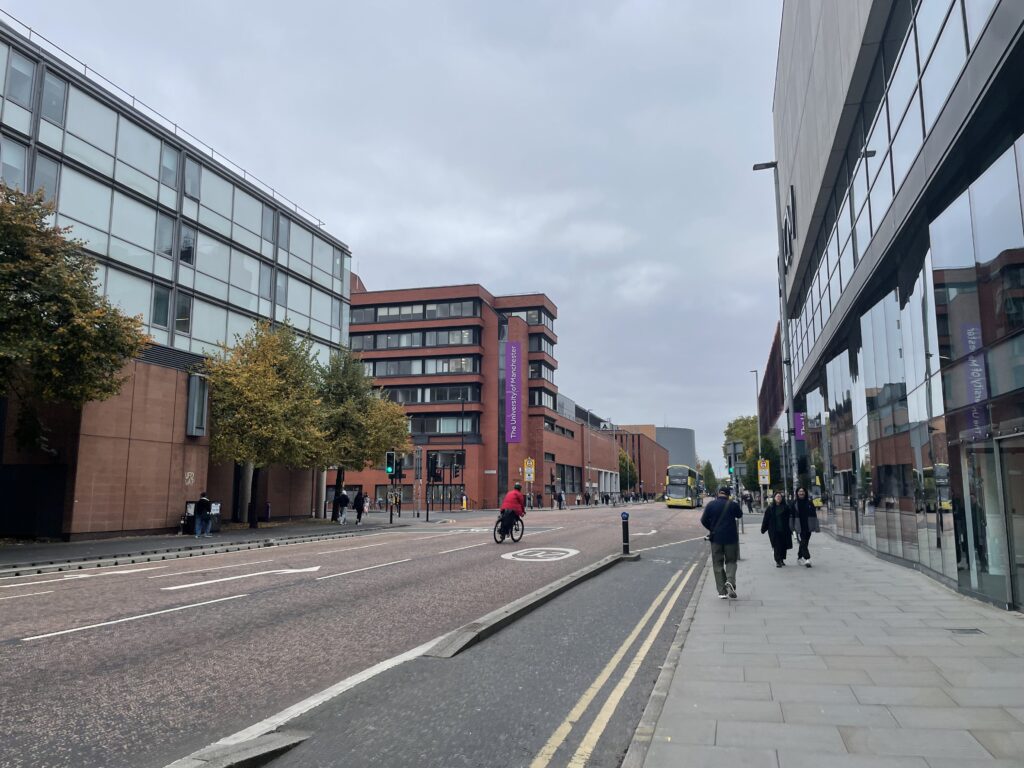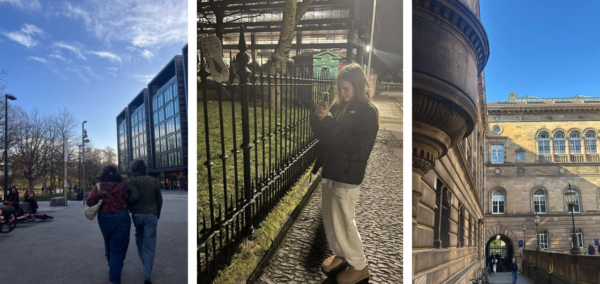
Survey finds 36 per cent of Manchester students use AI daily, including for mental health
60 per cent of respondents told The Manchester Tab they use it to help them with assignments
A survey by The Manchester Tab revealed how a number of Manchester students use ChatGPT and other AI chat bots to receive mental health and social advice.
This information comes from a series of polls posted to The Manchester Tab’s Instagram Story, where 36 per cent of students who use ChatGPT said they use it “daily,” with another 31 per cent saying they use the chat bot “at least once a week.”
The reasoning students gave for AI usage ranged from asking it to “write a rap about glaciers,” to training it to function as a makeshift therapist, complete with personalised cognitive behavioural therapy (CBT) training.
Patrick, a former multimedia journalism student at Manchester Metropolitan University, said he turned to ChatGPT and Snapchat AI bots for relationship-based advice in his third year at university.
He recalled waking up “stunned” after being rejected and had becoming emotionally burnt out after he realised his “hopes of finding love that year were fading.”
“I just remember crying,” he said.
Patrick also felt as though his friend’s advice wasn’t helpful enough, commenting that they kept telling him “you’ll find someone [eventually].”Feeling as though his feelings weren’t being validated, he turned to chat bot conversations for support. He said that both ChatGPT and Snapchat AI did a “good job” of validating his feelings and giving different, and more effective, responses than what he was hearing from his peers.
“It doesn’t judge me,” he said, adding that it “guarantees a validating response.”

Patrick Watson, an MMU graduate who uses AI chatbots for support and advice on personal worries
“Speaking to AI about my problems gave me some much-needed hope that I could bounce back from this situation,” he said.
Most Read
“Not only did it give an element of validation of my emotions…but it also gave me instant tips on how to pick myself up.”
The weekend after Patrick first used AI for emotional support, he returned home and “spent a lot of that time talking to ChatGPT about the situation about the situation and [about] the following week.”
He added: “The following Wednesday was going to be tough, knowing what I would likely have had to face [referring to socialising with his peers following the rejection] but ChatGPT was a lot more helpful than the average human in helping me prepare for it.”
Patrick also commented that the speed of ChatGPT’s responses was a significant factor in its value.
“One of the best bits is that you get a response straight away,” he said, “rather than having to wait for a person to be available.”
And it’s not just one student who is using Large Language Models (LLMs) in this way. One student, Alice*, shared with us that she paid for the premium version of ChatGPT and input PDF mental health guides into the system. This included a guide on cognitive behavioural therapy (CBT) to train the AI bot to better help her when she disclosed personal concerns.
Alice also told the chat bot that she finds comfort in journalling and tarot, and instructed ChatGPT to give her advice and suggestions based on this.
“I use it almost daily, especially now that it has the capability to speak out loud and have a conversation [with you],” she said.

Students in Manchester seem to trust ChatGPT for advice and information, with one student admitting that they have asked the bot for its “opinion on personal matters.”
A student respondent said they used ChatGPT “to see whether I’m being unreasonable in an argument.” Another student has used the chat bot for “closure from a failed situationship.”
One woman even admitted to using ChatGPT to help her break up with her ex.
Not all students agree with this regular use of AI, however, and the divide extends to the use of AI within academia. 64 per cent of students at universities in Manchester use ChatGPT to summarise academic texts, according to The Manchester Tab’s poll.
60 per cent of respondents said they use the chat bot to help them with their university assignments.
The top number of respondents to a poll was 506, with 303 students admitting to using ChatGPT for assignment help.

When asked if they struggle to understand academic essays without the use of ChatGPT, however, it seemed as though most students use the chat bot out of ease rather than necessity. Nevertheless, 22 per cent of students still admitted to struggling with understanding their supplementary reading without using ChatGPT for help.
One student said they used ChatGPT for help with “a whole [university] quiz.”
However, another student shared that after Chat GPT answered a control “test question” for a university lab test wrong, they’ll never use it again.
This practice is becoming increasingly common, with a BBC article published last spring featuring examples of UK citizens who were using ChatGPT in for personal advice and comfort.
One woman, Kelly, told the BBC that she treats AI like an “imaginary friend” that acts as an “encouraging external voice.”
Kelly added that the chat bot got her through a dark period in her life due to its constant availability and ability to provide coping strategies.
Professor Hamed Haddadi, who teaches human-centred systems at Imperial College London, expressed concerns at this practice.
He compared chatbots to an “inexperienced therapist.”
“[Therapists] look at various other clues from your clothes and your behaviour and your actions and your body language and all of that,” he said. “And it’s very difficult to embed these things in chat bots.”
Professor Haddadi also added that the validating nature of chatbots is a cause for concern, due to the way they are designed to keep humans engage and act supportive, no matter what is said.
Psychologist Ian MacRay warned BBC News readers against putting personal health and psychological information into the hands of an LLM.
“Some people are placing a lot of trust in these [bots] without it being necessarily earned,” he said.

Emil, a second year student at the University of Manchester, spoke to us about the negative impact of using AI in your studies.
“I think using gen[erative] AI at university defeats the point of studying,” she said. “Beyond just learning the content of your degree, going to university is meant to help you learn academic skills like essay writing, parsing sources [and] skim reading.
“I wonder why people pay so much to do so little with the real academic resources at their fingertips.”
Another student called it “genuinely ridiculous” to use AI for help with university studies.
The University of Manchester has previously ranked eigth in the UK for students’ AI usage, just behind Wrexham University.
If you feel affected by this story, please speak to someone or contact Samaritans on 116 123 at any time.
You can contact Anxiety UK on 03444 775 774, Mind on 0300 123 3393, and Calm (Campaign against living miserably, for men aged 15 to 35) on 0800 58 58 58.
All Manchester Metropolitan University students can access a 24/7 confidential wellbeing support service at mmu.ac.uk/247support using the code MMUwell, or by phoning 08082 389 888.
Greater Manchester’s mental health line can be reached at 0800 953 0285.
University of Manchester students can access 24/7 support via the Spectrum.life.
*Some names have been changed for anonymity.




















